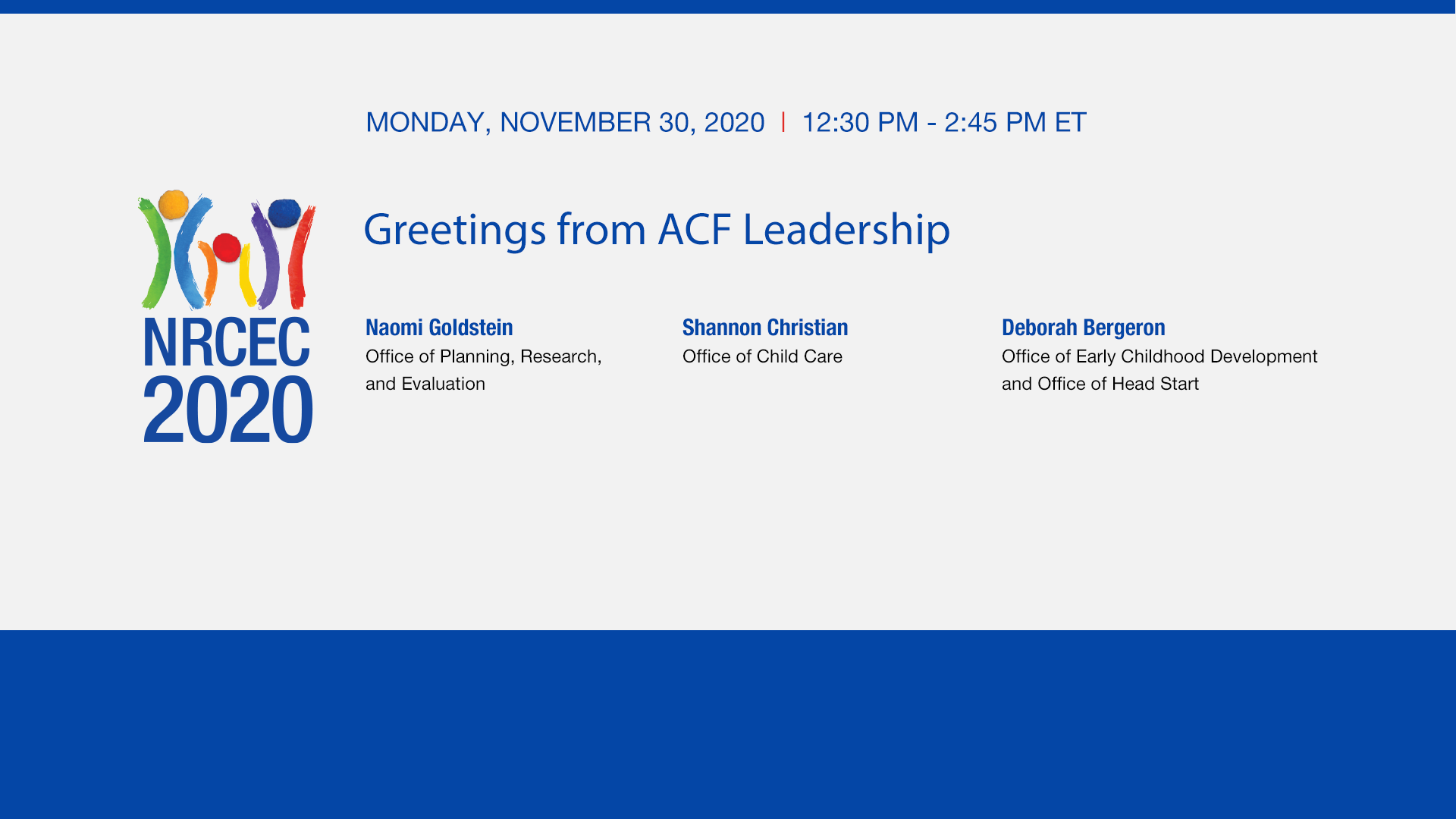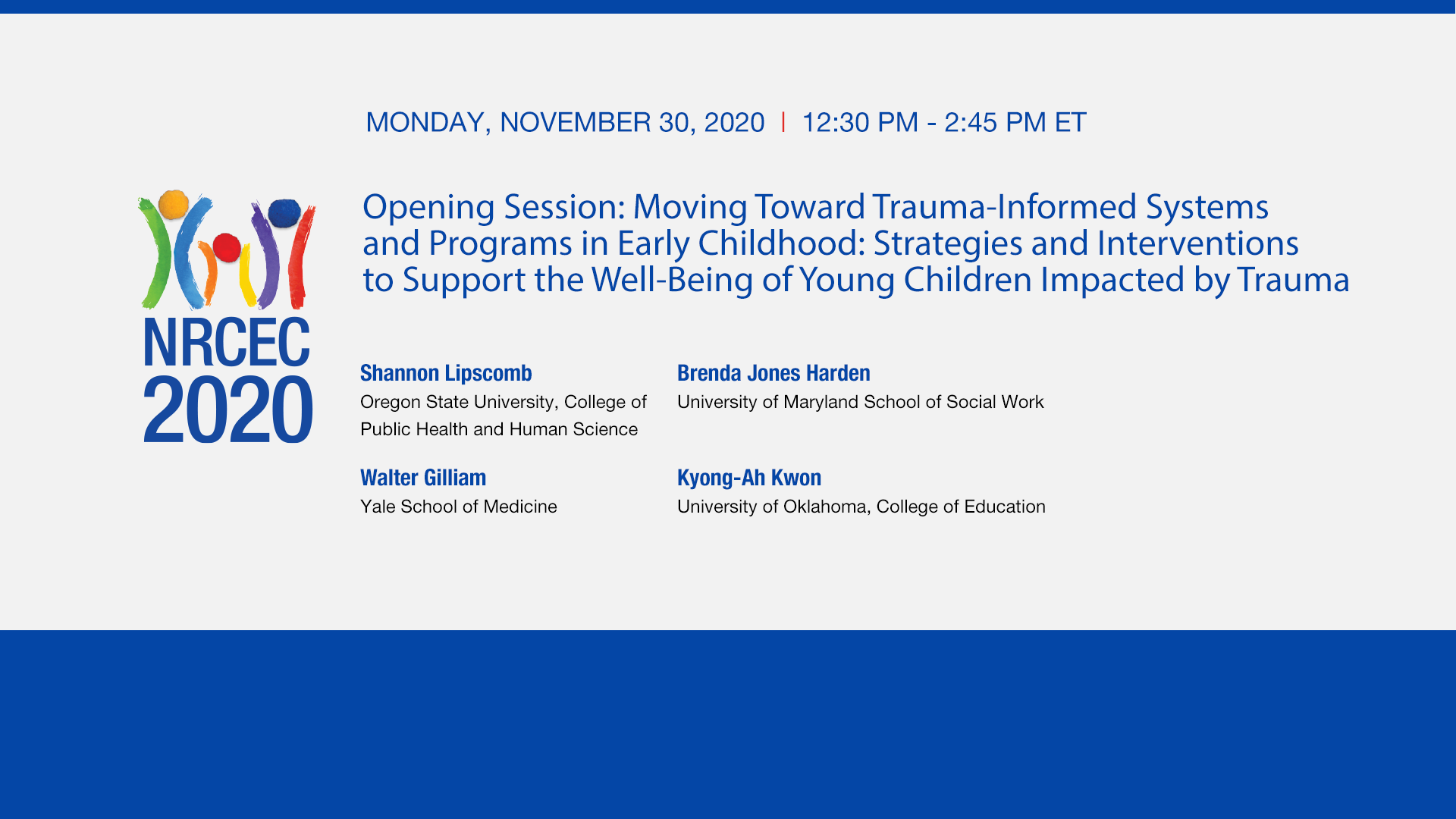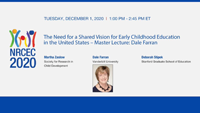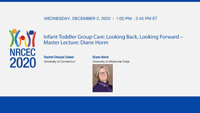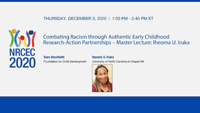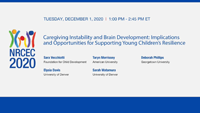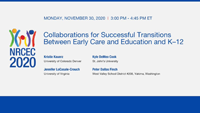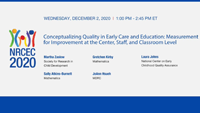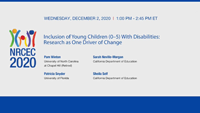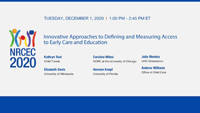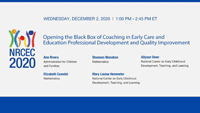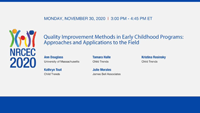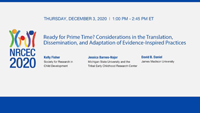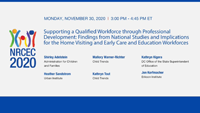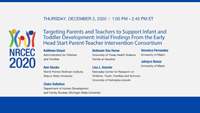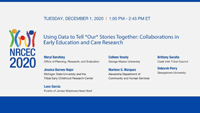Greetings:
Greetings from ACF Leadership
- Naomi Goldstein, Office of Planning, Research, and Evaluation
- Shannon Christian, Office of Child Care
- Deborah Bergeron, Office of Early Childhood Development and Office of Head Start
Opening Session:
Moving Toward Trauma-Informed Systems and Programs in Early Childhood: Strategies and Interventions to Support the Well-Being of Young Children Impacted by Trauma
- Kyong-Ah Kwon, University of Oklahoma, College of Education
- Brenda Jones Harden, University of Maryland School of Social Work
- Walter Gilliam, Yale School of Medicine
- Shannon Lipscomb, Oregon State University, College of Public Health and Human Science
Additional Resources
Master Lecture:
The Need for a Shared Vision for Early Childhood Education in the United States – Dale Farran
- Dale Farran, Vanderbilt University
- Deborah Stipek, Stanford Graduate School of Education
- Martha Zaslow, Society for Research in Child Development
Master Lecture:
Infant-Toddler Group Care: Looking Back, Looking Forward – Diane Horm
- Diane Horm, University of Oklahoma-Tulsa
- Rachel Chazan Cohen, University of Connecticut
Master Lecture:
Combating Racism through Authentic Early Childhood Research-Action Partnerships – Iheoma U. Iruka
- Iheoma U. Iruka, University of North Carolina at Chapel Hill
- Sara Vecchiotti, Foundation for Child Development
Caregiving Instability and Brain Development: Implications and Opportunities for Supporting Resilience
- Elysia Davis, University of Denver
- Taryn Morrissey, American University
- Sarah Watamura, University of Denver
- Deborah Phillips, Georgetown University
Collaborations for Successful Transitions Between Early Care and Education and K–12
- Kristie Kauerz, University of Colorado Denver
- Jennifer LoCasale-Crouch, University of Virginia
- Kyle DeMeo Cook, St. John’s University
- Peter Dallas Finch, West Valley School District #208, Yakima, Washington
Conceptualizing Quality in Early Care and Education: Measurement for Improvement at the Center, Staff, and Classroom Level
- Sally Atkins-Burnett, Mathematica
- Gretchen Kirby, Mathematica
- JoAnn Hsueh, MDRC
- Martha Zaslow, Society for Research in Child Development
- Laura Johns, National Center on Early Childhood Quality Assurance
Additional Resources
Mathematica Report Template - Understanding Quality in Early Head Start: Baby FACES 2018  PDF 1MB
PDF 1MB
Inclusion of Young Children (0–5) With Disabilities: Research as One Driver of Change
- Sarah Neville-Morgan, California Department of Education
- Sheila Self, California Department of Education
- Patricia Snyder, University of Florida
- Pam Winton, Retired, University of North Carolina at Chapel Hill
Additional Resources
Session Handout - Invited Panelists and Overview  PDF 1MB
PDF 1MB
Innovative Approaches to Defining and Measuring Access to Early Care and Education
- Kathryn Tout, Child Trends
- Elizabeth Davis, University of Minnesota
- Carolina Milesi, NORC at the University of Chicago
- Herman Knopf, University of Florida
- Julia Mendez, UNC Greensboro
- Andrew Williams, Office of Child Care
Opening the Black Box of Coaching in Early Care and Education Professional Development and Quality Improvement
- Elizabeth Cavadel, Mathematica
- Shannon Monahan, Mathematica
- Mary Louise Hemmeter, National Center on Early Childhood Development, Teaching, and Learning
- Allyson Dean, National Center on Early Childhood Development, Teaching, and Learning
- Ann Rivera, Administration for Children and Families
Quality Improvement Methods in Early Childhood Programs: Approaches and Applications to the Field
- Anne Douglass, University of Massachusetts
- Kathryn Tout, Child Trends
- Tamara Halle, Child Trends
- Julie Morales, James Bell Associates
- Kristina Rosinsky, Child Trends
Ready for Prime Time? Considerations in the Translation, Dissemination, and Adaptation of Evidence-Inspired Practices
- David B. Daniel, James Madison University
- Jessica Barnes-Najor, Michigan State University and the Tribal Early Childhood Research Center
- Kelly Fisher, Society for Research in Child Development
Supporting a Qualified Early Childhood Workforce Through Professional Development: Findings from National Studies and Implications for the Home Visiting and Early Care and Education Workforces
- Shirley Adelstein, Administration for Children and Families
- Heather Sandstrom, Urban Institute
- Mallory Warner-Richter, Child Trends
- Kathryn Kigera, DC Office of the State Superintendent of Education
- Jon Korfmacher, Erikson Institute
Targeting Parents and Teachers to Support Infant and Toddler Development: Initial Findings From the Early Head Start Parent-Teacher Intervention Consortium
- Ann Stacks, Merrill Palmer Skillman Institute, Wayne State University
- Claire Vallotton, Department of Human Development and Family Studies, Michigan State University
- Bethanie Van Horne, University of Texas Health Science Center at Houston
- Lisa L. Knoche, Nebraska Center for Research on Children, Youth, Families and Schools; University of Nebraska-Lincoln
- Veronica Fernandez, University of Miami
- Johayra Bouza, University of Miami
- Kathleen Dwyer, Administration for Children and Families
Additional Resources
Journal of Applied Research on Children Article - Building a Real-World Evidence Base for Improving Child and Family Outcomes 
Using Data to Tell *Our* Stories Together: Collaborations in Early Education and Care Research
- Jessica Barnes-Najor, Michigan State University and the Tribal Early Childhood Research Center
- Lana Garcia, Pueblo of Jemez Walatowa Head Start
- Meryl Barofsky, Administration for Children and Families
- Brittany Suralta, Cook Inlet Tribal Council
- Colleen Vesely, George Mason University
- Marlene G. Marquez, Alexandria Department of Community and Human Services
- Deborah Perry, Georgetown University

